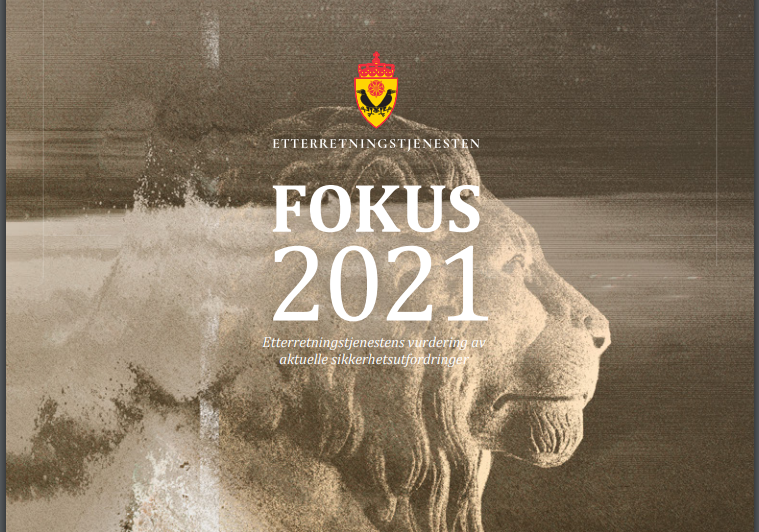Commentary The Intelligence Services Add Weight to the Demand about Strengthening the High North

“Norway is increasingly perceived as a NATO country rather than as a neighbor”, the intelligence services write in their recent threat evaluation.
There are still those who argue that High North politics is a regional and not national focus area. They have probably not read the intelligence services’ last report. They should do, and very soon too.
The intelligence services’ report ‘Fokus 2021’, which was presented this week, provides thorough documentation of how a robust Northern Norway is crucial for Norway’s national security.
Ever year the intelligence services present their annual threat evaluation, an analysis of Norwegian security and national interest. For a few hours, this report is all over the national news, in particular that part of the analyses that looks at the risk of extremist terrorism in Norway.
Uncontrolled race
That is just natural. The fear of terrorism is real, and it is the job of the Services both to discover and to fight terrorism.
However, the intelligence services are concerned with more than extremists. States’ tools and attitudes are also found in the report.
Not along the Swedish border or along the southern coast.
This time, the intelligence services draw a scary picture of military rearmament in Norway’s immediate neighborhood.
Not along the Swedish border or along the southern coast.
This uncontrolled rearmament goes on in our neighboring country Russia and in the ocean areas off the coast of Northern Norway. The claim that it is beyond control is not mine, though the Services settle for stating that control therewith is weakened.
“Big power rivalry has led to arms control, just like international cooperation in general, is weakened”, the report says in its very introduction.
Before continuing along the same track:
“This development has led to increased military activity in Norway’s neighborhood. Russia considers western activity in the High North a threat to its military bases on the Kola Peninsula as well as Russian security. There is no sign of improvement in Russia’s relationship with the West. Russian criticism has sharpened in the past year. This criticism is particularly aimed at the USA and NATO, and Norway is increasingly perceived as a NATO country rather than a neighbor.”
This is rather clear talk from a national service whose task it is to “warn about external threats”.
With the utmost gravity
The description above is supported by observations and analyses that all together fill more than thirty pages in a 100-page report.
The Services describe a political and weapon-technological development outside national international control in my very own neighborhood with the utmost gravity. They describe fear of nuclear accidents, a population subjected to extreme political and digital pressure, and Norwegian public institutions that are constantly subject to attempts at putting them out of play.
The Services do not go after wolves crossing the border, or diesel-fueled cars
The Services do not draw any political conclusions from their analyses. Nor do they divide blame between the East and the West.
That is not their job.
Must turn developments around
However, the intelligence services make an honest attempt at explaining why High North politics are a crucial part of national security policies.
The Services do not go after wolves crossing the border, or diesel-fueled cars.
Instead, it places an almost brutal responsibility on politicians in charge of defense and security policies.
Above all else, it is a guide for those who still do not understand the necessity of turning the demographic development in the High North around.
Presence in the form of a solid population will trump any military reaction – every time.
More from Arne O. Holm:
This commentary was originally published in Norwegian and has been translated by HNN's Elisabeth Bergquist.


